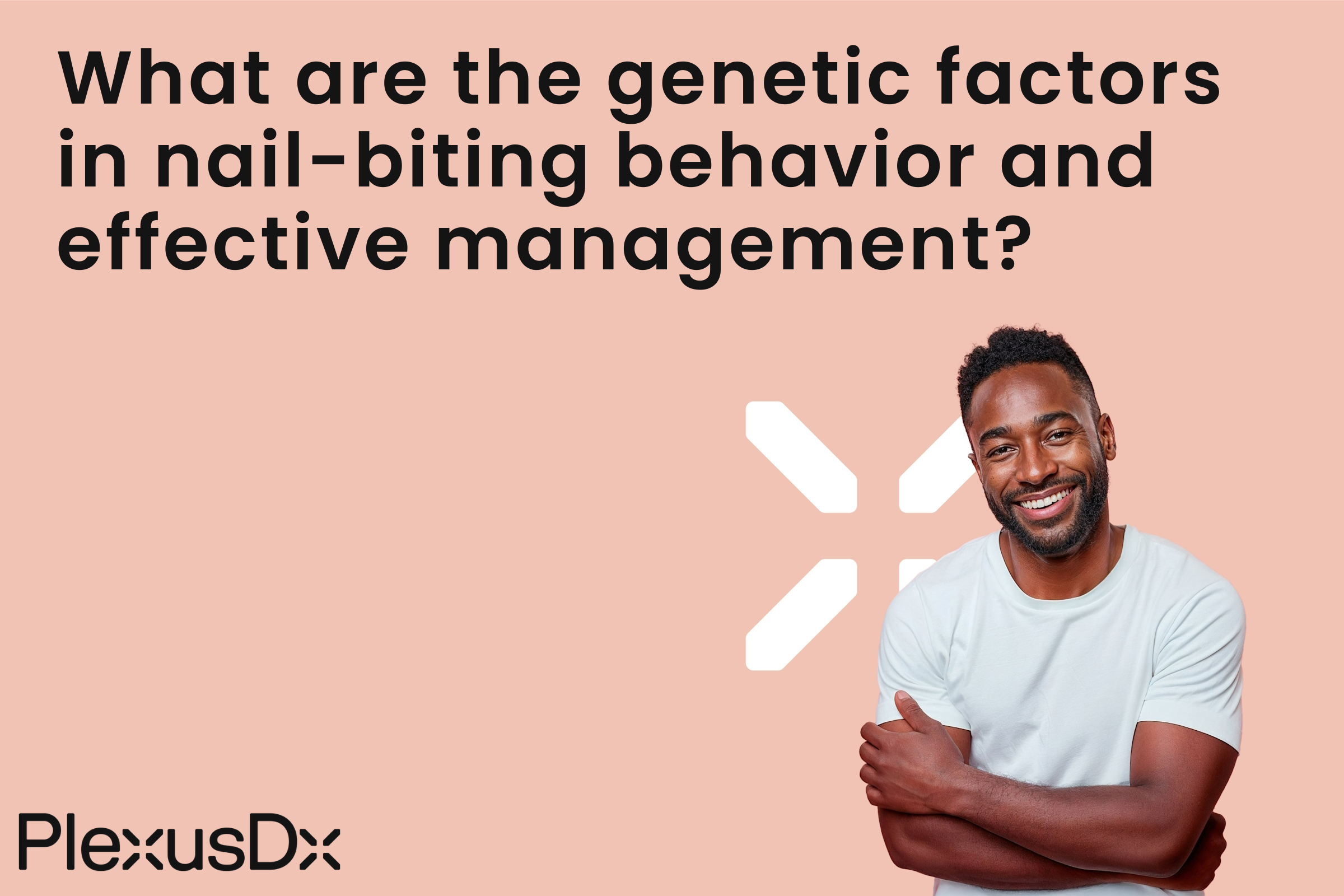Nail Biting
The behavior known as nail biting or onychophagia represents a frequent habit that impacts people throughout their entire lifespan. Do you ever ponder what drives certain individuals to bite their nails as they experience stress or boredom? We will examine the genetic factors that influence nail-biting behavior and identify methods to manage this habit effectively.
The Habit of Nail Biting
The habit of nail biting begins in childhood and continues into adulthood for certain people. Nail biting belongs to the category of body-focused repetitive behaviors which includes disorders such as trichotillomania. Nail biters run the risk of damaging their nails and skin which can result in infections and dental problems. The genetic model for nail biting does not have strong scientific proof but research suggests genetic predispositions might influence this behavior. The development of this habit can result from stress along with anxiety and boredom and also through imitation. People with ADHD, OCD or other body-focused repetitive behaviors (BFRBs) have a higher tendency to bite their nails. Genetic research has identified a specific variant of the DLGAP3 gene that correlates with tendencies to bite one's nails.
Managing Nail Biting
These practical strategies offer effective solutions for individuals who suffer from nail biting habits or know someone who does:
- Behavioral Therapy: Utilize habit reversal training methodologies to effectively address and modify nail-biting behaviors.
- Bitter-Tasting Nail Polishes: Apply nail polishes designed to prevent nail biting which produce an unpleasant taste sensation.
- Stress Management: Engage in stress-reduction activities and relaxation methods or physical exercise to remove triggers that cause stress and anxiety.
- Mindfulness and Awareness Training: Learn to recognize nail-biting patterns and create methods to stop this behavior by replacing it with better habits.
- Occupying the Hands: Engage hands with activities or objects to redirect nail biting urges and encourage better habits.
By understanding how genetic and environmental factors impact nail biting people can take effective steps to address this behavior. Discover your genetic predispositions through Precision Health & Wellness tests from PlexusDx and use this knowledge to make well-informed health choices. Learn how personalized health reports from PlexusDx.com, Amazon or Walmart can help guide your wellness journey. Nail biting represents a complex behavior shaped by genetics together with environmental and behavioral elements. People can establish control over nail biting by utilizing genetic testing insights and implementing effective management strategies to develop healthier nail care routines. Remember to make small adjustments because they produce substantial enhancements to your overall well-being. Begin your journey of genetic awareness and health optimization through Precision Health & Wellness tests available from PlexusDx. Adopt wellness through a holistic method and choose options based on knowledge that help maintain your health targets over time. Start your journey to better health today!

Share:
What are the causes of ear pain and how can you achieve relief?
Can DNA affect hemorrhoid risk and how to manage effectively?